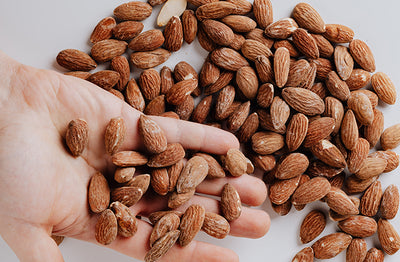Losing weight and eating better is on a lot of people’s minds at the moment and there is no shortage of weight loss diets competing for your attention. However, the reality is that most diets – the good and bad — will help you drop the kilos in the short term, but the goal is keeping them off! This relies on having an achievable plan that you can stick with. Typically, this means that diets that cut out entire food groups or impose strict rules for eating are less successful in the long term – unless medically advised by your healthcare team. Here we list what are considered by nutritionists to be the best and worst diets for sustained weight loss in 2021.
The best diets
Mediterranean Diet
No surprises here, the Mediterranean Diet is again considered the most effective weight loss diet by many nutritionists and experts. The Mediterranean Diet is rich in vegetables, fresh fruit, whole grains, fatty fish, olive oil, nuts, legumes, and some red wine and dairy — providing a balanced way of eating. The Mediterranean Diet prioritises plant-based foods, over highly processed ‘junk’ foods or fast foods. The aim is to eat healthier foods that are higher in fibre and protein and replace saturated fat and sugar in your diet. This will help you to eat fewer calories and lose weight. Carbs and fats are plentiful, but the good kinds, so the diet is still full of flavour. While some foods are limited, such as sugars and meat, every food is allowed on this diet, so it won’t feel too restrictive. Even though it’s technically a diet, it is more a way of eating than a strict diet. Beyond weight loss, there are other health benefits associated with eating like the Mediterranean’s. This diet supports heart and brain health and when combined with exercise and followed for longer than six months, it’s associated with reduced weight gain.
WW (Formerly Weight Watchers)
Another expert favourite is the WW Diet (or you may know this popular weight loss plan by its previous name, Weight Watchers). WW ranks highly because it is well researched, longstanding, and not an extreme diet approach. The latest version is set up to provide different options for how to follow the plan based on members’ food and lifestyle preferences. The WW program is pitched as more about wellness than just losing weight. The diet promotes long-lasting, sustainable changes and offers tangible rewards, from fitness class passes to travel shoe bags, when members reach their goals, providing more incentives to lose weight and keep it off. Members can also access a range of options such as personal coaches, an app, trackers, recipes, fitness info, and a 24/7 chat service. There is even an option for those who want to build healthy habits without focusing on weight loss. The WW Diet can work well for people who thrive in a community environment and prefer an eating plan that provides structure but allows for flexible choices.
Vegetarian Diet
A vegetarian diet is great for weight loss and general health. Research has shown that when you pay attention to portion size, a vegetarian diet can help with weight loss because the foods you eat such as fruit, veggies, whole grains, and plant-based protein contain fewer calories and fat and are more filling than foods found in a standard diet. Boosting your health is another great reason to consider a vegetarian diet. When carefully planned a vegetarian diet is high in nutrient-rich plant foods and low in saturated fat. A meta-analysis published in
Critical Reviews in Food Science and Nutrition, found that a vegetarian diet is associated with a 25% lower risk of heart disease and 8% reduced chance of cancer.
Flexitarian (or Semi-Vegetarian) Diet
The Flexitarian Diet allows you to add small amounts of animal products, like meat, poultry, or fish, for additional protein. This differs from the vegetarian diet, where all meat products including fish and poultry are excluded. The Flexitarian Diet allows you to burn calories in a balanced way. It helps by focussing on eating more plant-based foods along with high-fibre whole grains, lean proteins, and dairy. It prioritises plant-based foods and reduces the amount of meat you consume. Research found that semi-vegetarian diets were associated with weight loss and other health benefits such as lower blood pressure and a reduced risk of type 2 diabetes.
The DASH Diet
DASH stands for Dietary Approaches to Stop Hypertension, but it’s not only for people with high blood pressure, it can also help with your weight loss journey. The DASH Diet is promoted by the National Heart, Lung, and Blood Institute, a part of the National Institutes of Health (NIH) in the US. The DASH dietary plan includes elements of the Mediterranean Diet but incorporates a specific eating pattern. As well as being highly effective in reducing blood pressure, the DASH Diet promotes weight loss, protect heart health, lower the risk of type 2 diabetes, metabolic syndrome, and certain cancers. DASH recommends specific portions from various food groups, depending on one’s daily kilojoule needs. DASH is a straightforward diet and despite the rate of weight loss being gradual, it is a sustainable approach long-term. For those of you interested in starting the DASH Diet
here is an overview and meal plan to get you started.
Supplements
We know that getting all the right nutrients in your diet can be difficult. Getting the right amount of protein and the right protein is an essential part of weight loss and general health. Protein is made up of
amino acids and is essential for building muscle and losing weight. Low-carb products like
Max’s – Pro Series – SUPER SHRED,
Dymatize – Elite 100% Whey,
Cellucor – ALPHA AMINO,
Maxine’s – Burn and
White Wolf Nutrition - Vegan Natural & Lean Plant Protein will give you the important nutrients you need to generate muscle while working out, without packing on the kilos.
Diets to avoid
Carnivore Diet
The increasingly popular carnivore diet requires eating mostly meat (along with some eggs and fat, like cheese). However, many experts believe that this is not a healthy or sustainable diet, as there are many healthier ways to lose weight. This diet is extremely high in saturated fat, putting you at risk of increased cholesterol levels but it also omits many beneficial food groups such as fruit and veggies, which are proven to aid in weight loss.
Whole30
There are some positive elements to the Whole30 diet such as the inclusion of fresh fruit and veggies and focusing on whole foods instead of packaged, processed ones. However, the Whole30 plan prohibits eating many dietary staples such legumes, dairy and grains, making the program difficult to stick with. Some experts believe that the dietary rules can also create a cycle of guilt around food, which has been shown to cause an ongoing restrict-binge cycle over time, where you limit certain foods and then end up overdoing it on those foods later, before going right back to restricting and trying to be ‘good’.
Cleanse Diets
Juice cleanses or other types of cleanse diets are considered ineffective for long-term weight loss with no scientific research to support their health benefits.















